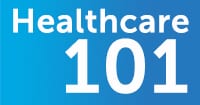Healthcare 101: Diabetes Risk Factors and Prevention
March 12, 2015

It’s National Kidney Month — an ideal time to assess your kidney health and the risk factors which might make you susceptible to kidney disease. Diabetes is the most common cause of kidney failure, as 1/3 of people with diabetes develop kidney disease. It’s important to know if you’re at risk for diabetes, as well as how to take steps to prevent its development.
Risk Awareness
Type 1 Diabetes typically occurs in children and young adults (it can happen at any age though), while Type 2 afflicts those over 40 most frequently — in recent years, it’s been occurring at increasingly younger ages. A person’s risk for diabetes rises when an individual…
- is over the age of 45
- has a family history of diabetes
- is part of a race more prone to developing diabetes (people of African American, Hispanic, American Indian, and Asian descent are at higher risk)
- has high blood pressure (chronically greater than 140/90)
- has unhealthy or abnormal cholesterol/triglyceride levels
- is overweight and/or living an inactive lifestyle
If you’re over the age of 45 (even if you’re healthy), ask your doctor about diabetes testing. If you’re under 45 and match multiple risk factors listed above, consult your physician about testing.
Symptoms
Some symptoms indicating the presence of diabetes include:
- unexpected weight loss
- blurry vision
- extreme hunger and increased thirst
- frequent urination
- fatigue
- numbness of extremities
Prevention
Though factors out of your control (genetics, race, etc.) contribute to your likelihood of developing diabetes, behavioral and lifestyle choices certainly play a part in preventing type 2 diabetes.
- Weight loss: Obesity is the leading risk factor for type 2 diabetes. It can cause high blood pressure and hinder your body’s ability to create/manage insulin. Losing excess weight is the best way to safeguard against diabetes.
- Physical Activity: Exercise goes hand in hand with weight loss, and physical activity can help boost sensitivity to insulin as well as reduce blood pressure and blood glucose levels. It’s recommended that adults get at least 30 minutes of exercise per day, five days a week.
- Dietary and Lifestyle Changes: Be sure and get plenty of fiber in your diet, especially through whole grains which can assist in maintaining blood sugar levels. Reduce your intake of saturated fats and salt. Smoking greatly increases one’s chances of developing diabetes, and excessive alcohol consumption can lead to weight gain and thus higher blood pressure.
In addition to maintaining an active lifestyle and healthy diet, you can be proactive about your health with regular physicals and health screenings at CareSpot. Monitoring your numbers goes a long way in identifying potential problems early!
